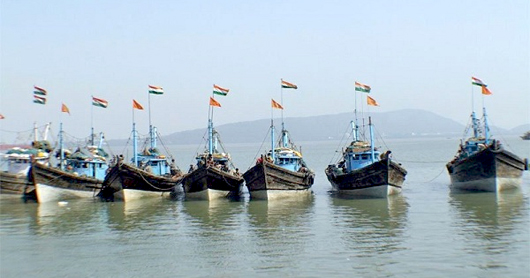Islamabad, Mar 21: As a goodwill gesture, Pakistan today released 57 Indian fishing boats that were in its custody.
In a statement, Foreign Office (FO) said the decision to release the vessels was taken in May last year.
Prime Minister Nawaz Sharif visited India at that time to attend the oath-ceremony of Prime Minister Narendra Modi.
An eight-member Indian delegation visited Karachi from March 9 to finalise modalities for the repatriation of boats with officials of the Pakistan Maritime Security Agency (PMSA), the statement said.

"While the PMSA had kept the boats in good condition, it extended full support to the visiting team in making the boats seaworthy after minor repairs. Subsequently, the boats were towed to the maritime boundary today, where these were physically taken over by the Indian side," it said.
Indian fishermen and boats are often apprehended by PMSA authorities when they violate Pakistan territorial waters.
Usually the boats are not in seaworthy condition and are not returned.
However, following instructions from the Prime Minister to return these boats, special efforts were undertaken by the PMSA to ensure that the boats are returned to their owners, the statement added.
Pakistan and India frequently arrest rival fishermen for violating the sea waters.





Comments
Add new comment